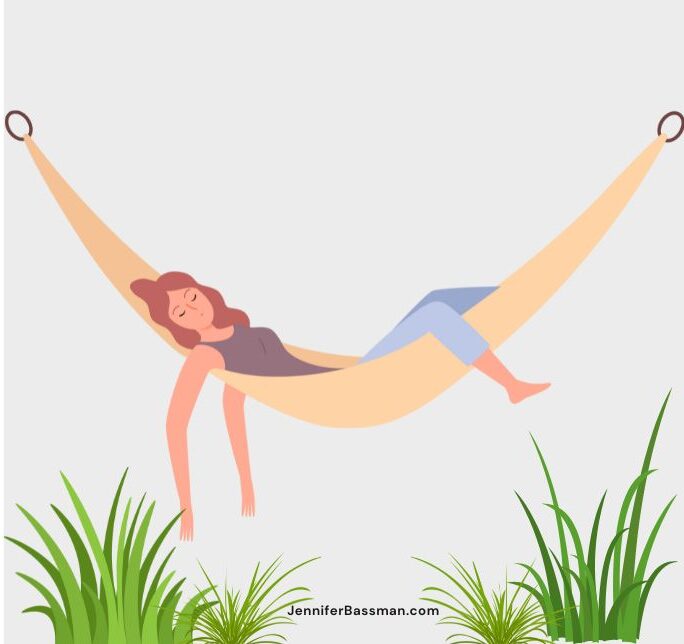I’m not a morning person.
I don’t know what happened. I used to get up (willingly!) at 6 a.m. to exercise (also willingly!) and start my day strong. Now, the thought of intense cardio before sunrise sends me deeper under the covers.
Yet, it seems like half the internet is obsessed with rigid morning routines that promise to “maximize productivity,” “allow you to do it all,” or trigger focused self-awareness that supposedly leads to success. One Real Simple headline even claimed a morning routine could help you “live to 100.”
Rise and grind, y’all!
Or… don’t. Yep, some of us weren’t meant to fall in line with a morning routine optimized for productivity.
(Read more here about Finding a Daily Routine That Works for You.)
The Pressure of the Morning Routine
According to social media influencers and productivity gurus, a winning day begins at 5 a.m. with caffeine, cold plunges, reading, journaling, and exercise. You’ll feel energized, in control, and laser-focused. Sleeping in? Lazy. Meaningless. Unorganized.
Morning routines can be intense. They require discipline. They often signal virtue.
The message? How you spend your mornings determines how you spend your life.
And yes — there’s truth to that. A structured start can boost mental clarity, reduce decision-fatigue, and create a sense of control. For many, morning rituals become anchors in a chaotic world.
But there’s more to the story.
Why Morning Routines Might Not Work for You
Science supports structured habits — but it also supports flexibility. Here’s why a rigid morning routine may not serve everyone:
- Creativity may suffer: Prescribed isolation and silence can stifle creative input and spontaneous thinking.
- Focus gets misdirected: Hyper-optimization can lead you to prioritize tasks that don’t actually matter to you.
- Different biological clocks: Not everyone’s “golden hours” are in the morning. A study by the IZA Institute of Labor Economics found optimal productivity times vary by age and lifestyle.
- Willpower is limited: If you burn all your motivation getting out of bed early, what’s left for the rest of the day?
- Life isn’t consistent: Travel, kids, early meetings—real life often interferes with perfectly planned mornings.
- You’re just not a morning person: And that’s okay. Forcing routines that don’t feel natural creates stress, not success.
Mindset Over Method
I used to feel guilty for not being a morning person. Like a lazy slob who couldn’t “rise and grind.” Then I realized: a routine is a tool — not a rule.
The real question is: Am I starting my day with intention — whether it’s 6 a.m. or 11 a.m.?
A meaningful morning doesn’t need to follow someone else’s checklist. It just needs to serve you.
Ask yourself:
- What do I truly need when I wake up?
- What makes me feel happy?
- What motivates me naturally?
- What are my actual priorities?
- What do I want my day to feel like?
(I doubt “cold plunge” made your list.)
Rethinking Morning Routines
Morning routines only matter if they matter to you. If they support your goals, align with your energy levels, and make you feel grounded — great. If not, ditch the pressure and keep the purpose.
Whether your day starts with meditation or with coffee and quiet, the key is alignment — not perfection.






